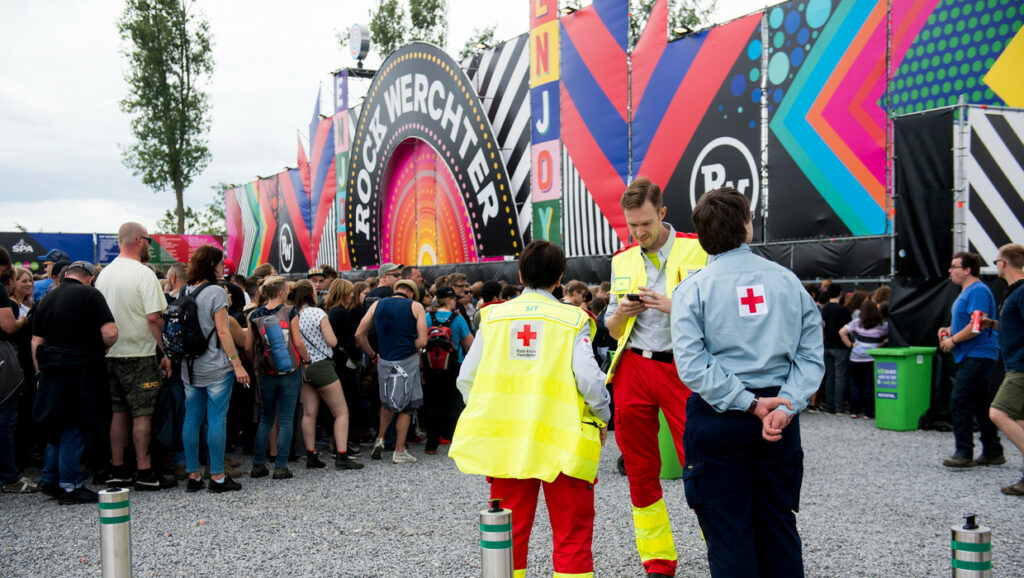The Medical Director of the Jessa Hospital in Hasselt, Jos Vandekerkhof, has called for the establishment of field hospitals at major festivals this summer after several girls ended up in the hospital after alleged needle spiking incidents at a Hasselt teen festival.
“If we are going to experience such phenomena with larger numbers, the capacity must be provided to relieve the emergency services,” says Jos Vandekerkhof, speaking to VRT.
Ten teenagers were taken to the Jessa Hospital for preventative measures after the first girl at the We R Young festival fell ill around 17:00 and reported to the nursing station, saying she felt a prick.
‘Needle spiking’
The phenomenon of needle spiking first arose in the United Kingdom in October last year, when party-goers were poked and felt dizzy or unwell. It is believed that some type of drug is injected.
In Belgium, two incidents were reported at the Pride festival, 14 victims claimed to be attacked during the Mechelen-RC Genk football match, and the We R Young festival was shut down after 24 teens fell ill.
It remains unclear whether the suspected cases actually are results of needle spiking, as experts do not rule out the option of a major panic reaction.
None of the Belgian victims who were searched for traces of drugs that could have been administered through a needle has tested positive.
Field hospitals
Vandekerkhof is planning to organise field hospitals at major festivals, for which he is looking into the logistics of making more medical staff such as nurses and doctors available.
“We need to be able to scale up fairly quickly to be able to treat those patients on-site. Otherwise, the emergency services will be flooded with a large number of patients, while their regular functioning must of course also continue,” he explains.
Panic reactions
While festivals already provide smaller medical posts, that may not be enough, according to Vandekerkhof - even if the ‘needle spiking’ incidents are a result of panic.
Related News
- Two 'needle spiking' incidents at Brussels Pride under investigation
- Syringe-spiking: 14 people attacked during Mechelen-RC Genk football match
- Hasselt festival closes as 24 teen girls fall ill after suspected needle spiking
“We have now seen that a panicked reaction can cause further panics. If one person is not feeling well, it can set off a chain reaction in others. And that is a problem,” he says.
He argues that a panic reaction is not harmless, as people have already shown flight behaviour when panic breaks out. “Sometimes they even hurt each other or fall. That is a chain reaction that can result in physical injuries.”
Meanwhile, the youngsters who were taken to hospital after the Hasselt incident have all returned home. “Of course this will still have its aftereffects. I think they will receive quite a bit of psychological support in the next few days,” said Vandekerkhof.

